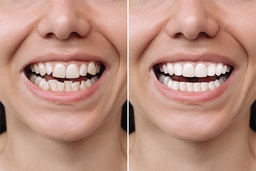Why Oral Health Is Often Overlooked

Oral health is often neglected until problems like toothaches, bleeding gums, or bad breath demand attention. In fact, maintaining good oral health is essential for overall well-being and a better quality of life.
Many people still believe that brushing once a day is enough or that dental checkups are only necessary when pain occurs.
However, poor oral hygiene can have far-reaching effects — not only on your smile but also on your general health.
The negative impact of ignoring oral health
Neglecting oral care can lead to plaque buildup and bacterial overgrowth, triggering various diseases. The most common problems include tooth decay, gum disease, tooth loss, and even oral cancer.
According to the World Health Organization (WHO), untreated dental caries is one of the most prevalent conditions worldwide.
About 2.5 billion people suffer from tooth decay, while 1 billion experience severe gum disease — the leading cause of permanent tooth loss. Additionally, around 380,000 new cases of oral cancer are diagnosed each year globally.
Factors contributing to poor oral health
Besides improper brushing habits, tobacco use and excessive alcohol consumption are major contributors to oral health problems. Both habits increase the risk of oral cancer, gum disease, and delayed healing of mouth sores.
Common consequences of ignoring oral and dental health

Neglecting dental hygiene doesn’t just cause discomfort — it can lead to serious complications such as:
1. Tooth damage and cavities
Skipping brushing or flossing allows food particles and bacteria to accumulate on teeth, producing acids that erode enamel. Over time, this leads to cavities, tooth pain, and even permanent tooth loss.
2. Gum diseases (periodontitis)
Poor oral hygiene often starts with gingivitis, an early-stage gum inflammation marked by redness and bleeding.
If untreated, it can progress to periodontitis, a severe infection that damages tissues and bone supporting the teeth, one of the main causes of tooth loss in adults.
3. Bad breath (halitosis)
Persistent bad breath is often a sign of poor oral hygiene. Bacteria on the tongue and gums release foul-smelling compounds, causing halitosis.
Beyond lowering self-confidence, it may also indicate infection or other oral issues.
4. Tooth loss and misalignment
Untreated decay or gum disease can cause teeth to loosen and fall out. Missing teeth may shift neighbouring ones, disrupting your bite alignment, speech, and jaw function.
How oral health affects your health

Research shows that poor oral health is closely linked to several systemic diseases:
1. Heart disease
Bacteria from infected gums can enter the bloodstream and cause blood vessel inflammation, increasing the risk of heart disease, arterial blockage, and stroke. People with gum disease are almost twice as likely to develop cardiovascular problems.
2. Diabetes
The relationship between diabetes and gum disease goes both ways. Poorly controlled blood sugar worsens gum infections, while severe gum disease makes it harder to regulate glucose levels — creating a harmful cycle.
3. Respiratory problems
Bacteria from infected gums and teeth can be inhaled into the lungs, causing pneumonia or chronic bronchitis. This risk is especially concerning for the elderly or immunocompromised individuals.
4. Pregnancy complications
Pregnant women with untreated gum disease face higher risks of preterm birth, low birth weight, and other complications. Maintaining oral health during pregnancy supports both maternal and fetal well-being.
Daily habits to maintain oral health

Good oral health is more than having white teeth and fresh breath — it’s about preventing diseases that can affect the entire body. Here are some daily habits to keep your mouth healthy:
- Brush your teeth twice a day using fluoride toothpaste.Fluoride strengthens enamel and protects against acid and bacteria.
- Floss daily to remove food debris and plaque between teeth.
- Use an antimicrobial mouthwash to reduce bacteria and freshen breath.
- Replace your toothbrush every three months or sooner if the bristles fray.
- Get regular dental checkups every six months for professional cleaning and early detection of potential issues.
- Eat a balanced diet rich in vitamins and minerals, and limit sugary foods and drinks.
- Stay hydrated to maintain saliva flow and natural oral protection.
- Avoid tobacco and limit alcohol, as both increase the risk of gum disease and oral cancer.
***
Maintaining good oral and dental health is a vital investment in your overall well-being. Healthy teeth not only support eating and speaking but also help prevent serious medical conditions like heart disease, diabetes, and infections.
If you’re looking for comprehensive and professional dental care, GWS Medika Clinic offers international-standard services with a skilled medical team dedicated to your comfort and long-term health.
Schedule your dental checkup today at GWS Medika, your trusted healthcare clinic in Jakarta — because a healthy smile is the foundation of a stronger, healthier body.



